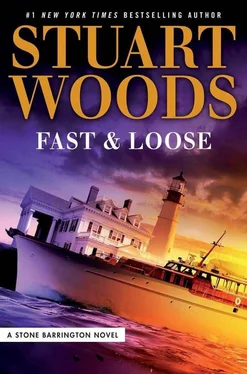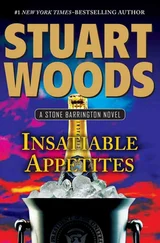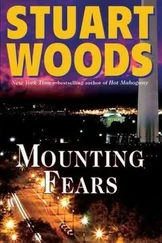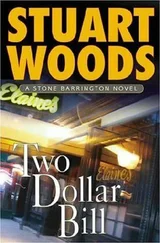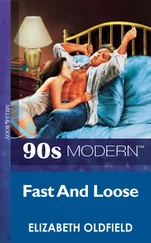Macher rose as the board members filed into his office and took their seats at the conference table. He sat down opposite them. “Good morning, gentlemen. What is the purpose of this meeting?”
“The purpose,” the chairman said drily, “is to discuss the failure of the takeover bid for the Carlsson Clinic.”
“Are you implying that this is my failure?” Macher asked.
“Erik, you are the CEO — the buck stops with you.”
“May I remind you that Christian St. Clair initiated the takeover bid, presumably with the agreement of this board? And that Christian made a bid that could only be described as ‘lowball,’ thus starting a bidding war?”
“While both of those things are nominally true,” the chairman said, “they are irrelevant. We are discussing your actions.”
“I took no actions,” Erik said.
“Exactly. And there are times when no action is an affirmative action.”
“Because of the lowball nature of Christian’s bid, my only option was to offer a price higher than I deemed the clinic to be worth,” Macher said through gritted teeth. “I am not in the business of paying more than a thing is worth. Had we offered the one hundred and fifty percent to begin with, we would now control the Carlsson Clinic. You may complain to the ghost of Christian St. Clair about that.”
“Also,” the chairman said, “it has come to the attention of the board that you are now a suspect in the smuggling of a large quantity of cocaine aboard the company yacht.”
Macher shot a glance at Tommy Berenson, whose gaze was now directed at a point at the approximate height of the room’s crown molding. “I want you all to listen to me very carefully,” Macher said, and he gave them an account of the incident aboard the yacht. “I hope that is perfectly clear, because I am not going to explain it to you again.”
“So,” said the chairman, “as I understand it, we will not know for some time whether these charges are true.”
“There are no charges extant,” Macher said.
“I must tell you frankly, Erik, that if these charges are substantiated, we will be required to demand your resignation with immediate effect.”
“What charges?”
“Surely you have heard everything I have said,” the chairman said.
“Of course, but apparently you have heard nothing I have said. Let me put it this way — there are two possible outcomes to this investigation. First, that the substance found is not cocaine, in which case no charges will be filed. Second, that the substance is cocaine, in which case the culprit will be seen to be Christian St. Clair, who will not appear to speak in his defense.”
“So you say.”
“So I say. Is there anything else to discuss?”
“Not at this moment.”
“Good. This meeting is adjourned. Tommy, you remain.”
The men filed out, and Berenson remained. A thin film of perspiration had appeared on his upper lip.
“Erik, I have not violated your confidence,” Berenson said.
“Then how did news of the incident aboard the yacht come to the board’s attention?”
“I don’t know. I didn’t know it would be brought up.”
“Tommy, if you are lying to me you will pay dearly.”
“I swear to you, I had no knowledge of this, and I have spoken to no one about our conversation.”
“Very well, I will take your word for it. You may go.”
Berenson went, and quickly.
In his office, Charles Fox listened with considerable amusement. When the recording had finished, he took out a cell phone and called Ed Rawls.
“Hey, Charley, what’s going on around there?”
“In a word, Ed, pandemonium.”
“I’m happy to hear it. Is this the result of our collaboration on the Coast Guard event?”
“It is, certainly. Macher, if he wasn’t paranoid before, is now climbing the walls, and it would not surprise me if that has the effect of a more serious attempt on the Carlssons or Barrington, or all of them.”
“Well, we knew that would have to happen before we achieve a resolution of this sorry affair, didn’t we?”
“I suppose we did.”
“And we will achieve a satisfactory resolution,” Rawls said.
“I hope so.”
“I think the time has come for you to meet Stone Barrington.”
“I’d like that very much,” Fox replied.
“Call him at this number in half an hour,” Rawls said, dictating it.
Joan buzzed Stone. “Ed Rawls on one.”
Stone picked up. “Yes, Ed?”
“Stone, I think it’s time for you to meet my source at St. Clair.”
“I’m up for that.”
“His name is Charles Fox, Charley to his friends. He’s going to call you in half an hour, and I suggest that you invite him to your home for dinner, rather than meet at a restaurant, and warn him not to be followed.”
“All right. Tell me something about him.”
“He’s in his mid-thirties, a Southerner, scholarship to Yale, Rhodes Scholar, recruited to the Agency by a Yale professor. I’ve read his personnel file, and he got high marks from everyone during his training. When I was station chief in Stockholm, he was sent to me for an operation requiring an officer who was not connected to the embassy. He performed beautifully. He’ll tell you the rest, including what he wants.”
“All right, I’ll look forward to hearing from him.”
“By the way, I didn’t thank you properly for dinner and the guest room. We had a wonderful time. See ya.” Rawls hung up.
Half an hour later, Joan buzzed. “A man who won’t give his name but says you’re expecting his call.”
“Right.” Stone pressed the button. “Hello?”
“This is Ed’s friend. May we meet?”
“Are you free for dinner this evening?”
“Yes.”
Stone gave him the address. “Come here at seven, and we’ll dine in. Ed says you should be careful of a tail.”
“Right. See you then.” He hung up.
At seven on the dot, Stone picked up the phone to answer the front door. “Yes?”
“It’s Fox.”
Stone pressed the button to unlock. “Come in.” He got up and walked from his study into the living room to greet his guest.
Charles Fox was about five-ten and thickly built — maybe two hundred pounds, sandy hair, pleasant mien. He moved like a man who knew how to take care of himself.
Stone offered his hand. “I’m Stone.”
Fox shook it. “I’m Charley.”
“Come into the study,” Stone said, leading him in. “What will you drink?”
“I’m a Southerner, a bourbon man.”
Stone poured two Knob Creeks and showed him to one of a pair of chairs before the fireplace, where a small fire blazed.
“Ed speaks highly of you,” Stone said.
“I think highly of him. I thought he got a raw deal at the Agency, and I’m glad it got straightened out.”
“Tell me a little about yourself — the sixty-second bio will do.”
“Born Delano, Georgia, thirty-four years ago. Father and mother mill hands. Public schools, scholarship to Yale to study English lit, a Rhodes, spent at Oxford, then back at Yale, recruited for the Agency.”
Stone nodded. “Did you like it there?”
“I did. I actually enjoyed the training, especially the physical stuff, which a lot of my classmates shied from. I got a couple of interesting assignments right away, including one in Stockholm, under Rawls. I spent two years in the London station.”
“Who’d you work for in London?”
“Dick Stone. Ed says you were related.”
“First cousins.”
“A good man. He would have been director by now.”
“Why’d you leave the Agency?”
“I was always a poor boy, and I wanted to make some money. A friend of a friend introduced me to somebody at Goldman Sachs, and they hired me as a trainee. I spent six years there, made partner after five.”
Читать дальше
